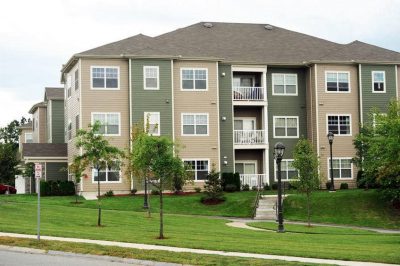Transitioning from Landlord to Seller: Using a Qualifying Landlord Exemption for a Sale
As we approach the end of 2020, the hopes of quickly moving beyond, and triumphing over, COVID-19 appear to be fading.
Oregon Governor Kate Brown has placed new restrictions on businesses to head off the rising spread of the virus. The legislature is discussing further legislation involving an extension of the eviction moratorium and a rent-reimbursement fund for landlords.
While plans for the latter do not appear finalized as of this writing, it does appear that the moratoriums will be extended in some form.
Transitioning from landlord to seller
As a result of the above legislation, and that which preceded it, many landlords are looking to sell their rental properties.
While most no-cause notices are prohibited in current eviction moratoriums, both the state and local moratoriums allow for landlords to serve a no-cause notice related to sale of the property. While it seems simple, there is far more coordination involved—and necessary—to serve such a notice due to the many elements landlords must meet to qualify for the exemption.
ORS 90.427(5)(d) and ORS 90.427(6) discuss the No-Cause Notice Qualifying Landlord Exemption involving sale of property.
As with every qualifying landlord exemption, they require that the landlord provide a 90-day notice specifying the reason for the termination and supporting facts. It also requires the payment of one month’s rent for relocation assistance at the time of service of the notice unless the landlord owns four or fewer rental properties. The landlord may also be required to pay additional relocation assistance, depending on local relocation-assistance requirements.
The above requirements are the same for all qualifying landlord exemptions, but the sale exemption is more burdensome than others.
The Landlord must have:
(a) Accepted an offer to purchase the dwelling unit separately from any other dwelling unit from a person who intends in good faith to occupy the dwelling unit as the person’s primary residence; and
(b) Provided the notice and written evidence of the offer to purchase the dwelling unit to the tenant not more than 120 days after accepting the offer to purchase.
The requirements of (a) complicate matters greatly.
The landlord simply cannot rely on the fact that they intend to sell the property; they must have accepted an offer to purchase the dwelling unit from someone who intends to occupy the same. Many buyers wish to occupy the home promptly. However, due to the 90-day notice requirement of the statute, that simply cannot occur, which can complicate sale matters. Additionally, the purchase of the dwelling must be separate from any other dwelling unit—which causes the sale of duplexes and triplexes to fall outside of the exemption.
Transition from landlord to seller is not easy
Landlords/owners who cannot meet the above requirements may have other options at their disposal to assist with the sale of the property.
However, these likely require cooperation with your tenants, and therefore, those options should be used in close conjunction with your attorney.
The penalties and complications from missteps can involve lost time, lost sales, and potential exposure to claims.
Accordingly, a proactive approach, as opposed to a reactive one, is appropriate for any landlord seeking to use this—or any—qualifying landlord exemption to transition from landlord to seller.
Source: rentalhousingjournal.com
















 Accessibility
Accessibility